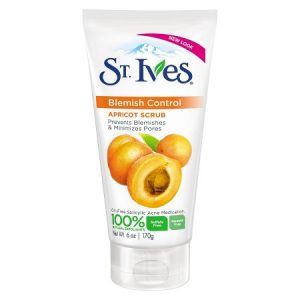 Top Class Action Lawsuits
Top Class Action Lawsuits
Lawsuit Claims Scrub the Advertising…not your skin. The makers of St. Ives Apricot Scrub are facing a consumer fraud class action lawsuit that claims the facial cleansing product damages users’ skin.
Filed by Kaylee Browning and Sarah Basile in the U.S. District Court in California against Unilever, the parent company of St. Ives, the lawsuit claims that advertising for the product states it will give people softer skin. However, the plaintiffs claim the product is “unfit” to use. They state in the lawsuit that the scrub contains crushed walnut shells, which make the product completely unsuitable to be used on one’s face.
The St. Ives scrub lawsuit cites a 2015 quote in a New York Magazine article by a dermatologist who said: “[l]arge, hard, and sandlike rocks” like those in St. Ives Apricot Scrub are “too abrasive for the face’s thin skin.”
Citing another quote from that same article, the lawsuit contends that abrasive scrubs create “micro-tears” in the skin, and that this damage makes the skin “more vulnerable to environmental damages, pollution, and sun damage.”
The plaintiffs claim that Unilever has known about these issues, as it advertises the product as being “dermatologist tested.” Yet despite knowing this, Unilever does not disclose that the product causes skin damage or that it is not actually recommended by dermatologists, the plaintiffs claim.
Further, the plaintiffs assert that Unilever’s representation that St. Ives Apricot Scrub is “non-comedogenic,” i.e. that it does not tend to clog pores is false, as several of the product’s ingredients are allegedly highly comedogenic.
The named plaintiffs seek to represent a nationwide Class consisting of all persons in the U.S. who purchased St. Ives Apricot Scrub. They also propose to represent two subclasses, each from their respective home states of California and New York.
The lawsuit is Kaylee Browning, et al. v. Unilever United States Inc., Case No. 8:16-cv-2210, in the U.S. District Court for the Central District of California.
Top Settlements
Chemical Dumping Victim Awarded $10.5M. DuPont’s losing—to the tune of millions. $10.5 million in punitive damages has been awarded to a man who alleges DuPont’s C8 chemical dumping caused his cancer. This punitive award is the largest punitive to date in the multidistrict litigation (MDL).
The jury awarded the $10.5 million on top of $2 million in compensatory damages, to Kenneth Vigneron as well as his attorney’s fees. Vigneron claims that DuPont’s decades long practice of dumping Teflon ingredient C8 into the air and water from their factory on the Ohio river in West Virginia, has caused a cancer cluster in a number of Ohio water districts.
Verdicts from two earlier trials favoring the plaintiffs in the MDL are on appeal. The next trial is set to begin January 17, with 11 more trials set for later in the year in four different cities.
The cases are In re: E.I. du Pont de Nemours and Co. C-8 Personal Injury Litigation, case number 2:13-md-02433, and Vigneron v. DuPont, case number 2:13-cv-00136, both in the U.S. District Court for the Southern District of Ohio.
Consumers Getting Milked? At a loss for words on this one—well at least polite words. A $52 million settlement has been reached in an antitrust class action lawsuit pending against several milk producers alleging they conspired to fix milk prices.
According to the complaint, the defendants, namely National Milk Producers Federation aka Cooperatives Working Together (CWT), Dairy Farmers of America Inc., Land O’Lakes Inc., Dairylea Cooperative Inc. and Agri-Mark Inc., participated in an agreement to prematurely slaughter the dairy cows in their herds and, as of April 1, 2009, they agreed not to re-enter the dairy farming business for at least one year. Who does this?
“The principle purpose and effect of this contract, combination and conspiracy has been to reduce the supply of milk, eliminate competition, and significantly reduce the number of dairy farmers competing in the market in order to increase the price of raw farm milk,” the lawsuit states.
Under the terms of the proposed milk pricing antitrust settlement, which requires final court approval, a total of $52 million in compensation will be made available to Class Members. The actual amount of compensation each Class Member can expect to receive depends on how much milk was purchased for their household, and how many total claims are filed.
Eligible class members include consumers who purchased milk or other milk products including half & half, cream cheese, sour cream, cottage cheese, yogurt or cream, since 2003 while living in one of these states: Arizona, California, District of Columbia, Kansas, Massachusetts, Michigan, Missouri, Nebraska, Nevada, New Hampshire, Oregon, South Dakota, Tennessee, Vermont, West Virginia, and Wisconsin. Consumers must have bought the milk products from a grocery store or other retailer and not directly from the defendants.
Well folks –that’s a wrap for this week. See you at the bar.
